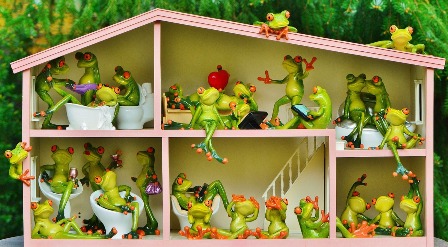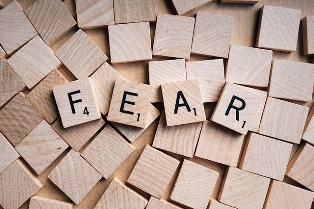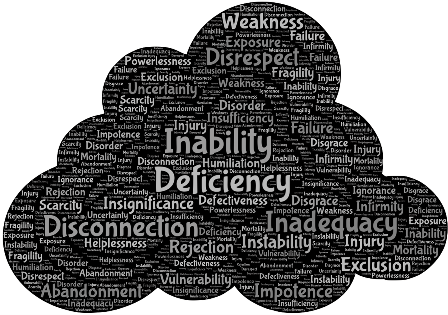Name Your Fear

Name Your Fear
I’ve written about fear before now–how fear can motivate and even inspire you. We’ve looked at writers’ fear of being rejected by publishers, laughed at by readers, scorned by fellow writers, and even the dread that fills up our Halloween daymares.
This is different. Sometimes we are afraid of things and we don’t even realize we’re afraid until we are faced with the moment and YIKES! Suddenly we discover we are afraid! And fear can cause us to react in strange ways. Plus not everyone’s reactions are the same or even logical. But we can learn and understand them.
Take me for instance. I am afraid of heights. I get weak in the knees and dizzy if I am up to high without safely assurances. I have a hard time looking over a railing into any abyss. When I went to the Eiffel tower in Paris, I was surrounded by so much metal and I had plenty to hold on to while I peered down. But when I was on a cruise ship, I stepped out onto my balcony and, as my husband leaned over the railing, I hung back, peeked over the edge and backed up into a balcony chair. All I could envision were the people I’d heard about who fell off a cruise ship from their balcony. No thanks!
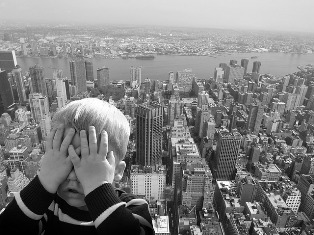
But what are those fears? Wouldn’t you like to understand what is the name of the fear that makes you want to scream? Well, I did and here are some of my favorites.
Almost everyone gets bug-eyed when they hear Arachnophobia. See that spider? RUN! Seriously, some people do run when they see one.
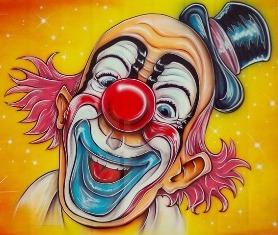
Anyone see the movie IT? Ah yes, the clown that terrifies! That’s known as Coulrophobia. And it’s one reason why the circus stopped having clowns run amuck through the audiences — because children seem to have a natural wariness of the weird smiling, face-painted person who is big and tall and seems to leer at them. (SHUDDER). Then along came Stephen King. (GULP)
Would you like me to tell your fortune? Yes? Give me your last three address numbers. What? No? Afraid of numbers? Ah yes, that’s known as Numerophobia. People suffering with this odd fear have a difficult time in school because math is scary. (I hated math too).
What about people who are afraid of everything in general? These folks jump at everything because they don’t know what’s coming. It’s a real fear of the unknown and called Xenophobia.
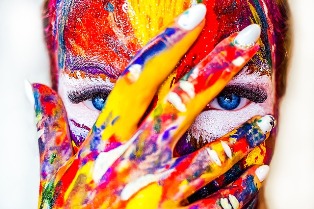 And how about the people who insist they wear sunglasses? No, they aren’t vampires or just being cool. No, they aren’t hiding swollen pupils from drugs (well, I guess they could be any of those). You might be surprised to learn that they are afraid of —— colors. Yup, and it’s real and its called Chromophobia. Imagine being afraid to see the world in all its glory. Kinda makes you sad, doesn’t it?
And how about the people who insist they wear sunglasses? No, they aren’t vampires or just being cool. No, they aren’t hiding swollen pupils from drugs (well, I guess they could be any of those). You might be surprised to learn that they are afraid of —— colors. Yup, and it’s real and its called Chromophobia. Imagine being afraid to see the world in all its glory. Kinda makes you sad, doesn’t it?
There are many others, fear of heights is called Acrophobia. It is especially nasty because it strikes even when you aren’t very high up and can be terrifying. It happened to me once standing on a regular 6 ft ladder and I was only on the third step.
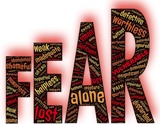 Here are a couple more that may make you raise and eyebrow but are truly terrifying to whomever is feeling it:
Here are a couple more that may make you raise and eyebrow but are truly terrifying to whomever is feeling it:
Arachibutyrophobia – the fear of peanut butter sticking to the roof of your mouth.
Allodoxaphobia – the fear of people’s opinions (this usually goes with a fear of confrontation).
Didaskaleinophobia – the fear of going to school (usually in children 7-10 yrs) and usually comes from a result of bullying.
* *
Fear can strike anyone for any number of reasons. Being anxious is not the same as being afraid and it is important to know the difference. Overcoming our anxieties is doable alone. But if you, or someone else, suffers from a deep fear (even triskaidekaphobia which is the morbid fear of the number 13), I encourage professional help and never laugh. Ridicule strengthens fear. Compassion and understanding are the only aids we can, and should, offer.
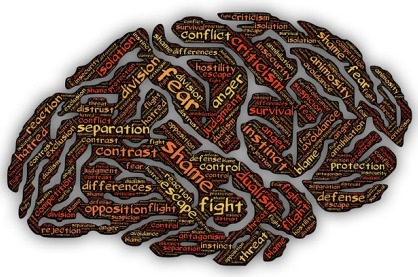
Whatever your fears are, learning to know them and deal with them is important. My mom used to say, “if you give your fear a name, you take away its power.” I tried that with my fear of heights, and it didn’t take away my fear but I didn’t feel silly anymore because I knew what I felt was real and not imagined (phobophobia is the fear of fears).
And when something is real, it can be beaten. So, what are you afraid of?
Thanks for not being afraid to come by.
I remain, Yours Between the Lines,
Sherry
















